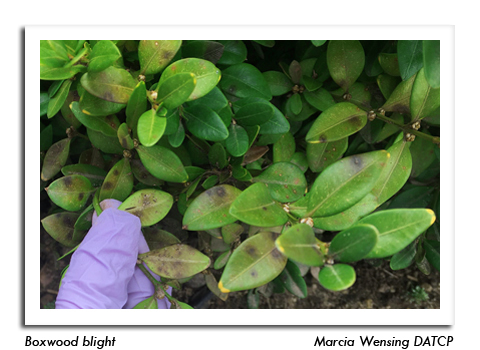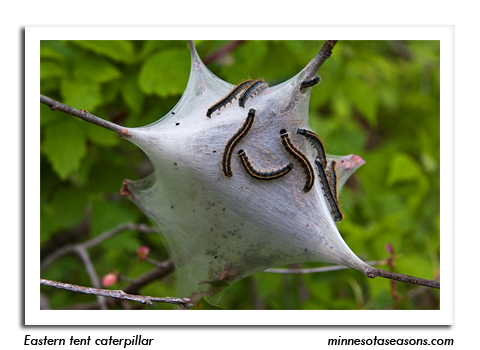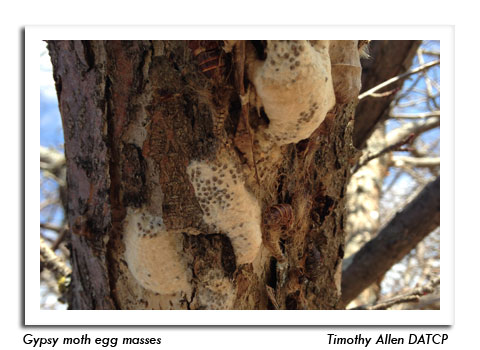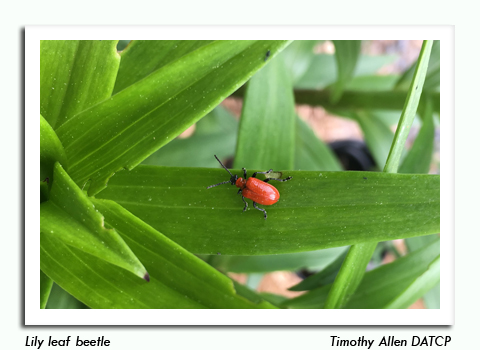
 |
|
|
Looking Ahead
Volume 65 Number 1 Date 04/30/2020 BLACK CUTWORM - Counts have been low since the first moths appeared in survey traps on April 8. The DATCP network of 44 pheromone traps monitoring the annual black cutworm (BCW) migration has captured only 109 moths this month, and intense flights of nine moths in two nights have been not been documented as of April 29. The scarcity of BCW moths may signal a low risk for spring infestations. BROWN MARMORATED STINK BUG - A milder-than-average winter is likely to have favored survival of this invasive pest. Growers in southern and eastern Wisconsin where BMSB has been established for 10 years should expect to see stink bug damage in field, fruit, and vegetable crops this season. With the recent addition of Dodge, Green, Lafayette and Waupaca counties, BMSB has now been confirmed in 32 of Wisconsin's 72 counties. BOXWOOD BLIGHT - Consumers should closely inspect all boxwood plants for blight symptoms before purchase and installation. Boxwood blight was found on shrubs at a Dane County residence last October, marking the first report of the disease in the landscape. Isolating new boxwood shrubs from established boxwoods for one month before planting is strongly recommended, along with routine weekly checks of plants for symptoms. Purchasing boxwood shrubs from local reputable suppliers is always advised. Information on boxwood blight, including descriptions of symptoms, can be found at https://datcp.wi.gov/Pages/Programs_Services/BoxwoodBlight.aspx. EASTERN TENT CATERPILLAR - Egg hatch is underway as far north as Wausau in Marathon County. The distinctive silk webbed tents will become noticeable on apple and other host trees by mid-May. Use of insecticides is not necessary to control this caterpillar. Defoliated trees usually grow new leaves, and natural enemies such as birds, parasitic wasps, and disease organisms also help to regulate populations. GYPSY MOTH - Larvae from overwintered eggs are expected to begin emerging in the week ahead. Horticultural oil applied directly to the egg masses will remain an effective treatment for 1-2 more weeks in the central and northern areas of the state. Golden Pest Spray Oil and other oil products labeled for gypsy moth control are available online or at garden centers and retailers. LILY LEAF BEETLE - Gardeners and homeowners are asked to be on the lookout for the invasive red lily leaf beetle (LLB) this spring and to take measures to prevent it from spreading. First detected in Marathon County in 2014, LLB now occurs in at least 12 Wisconsin counties, including six new counties as of last season: Dane, Door, Oneida, Pierce, Price and Taylor. The bright red overwintered beetles should begin emerging in the week ahead. Without intervention, defoliation caused by the adults and their larvae will eventually kill lily plants. -- Krista Hamilton, DATCP Entomologist .jpg)





|
|
|